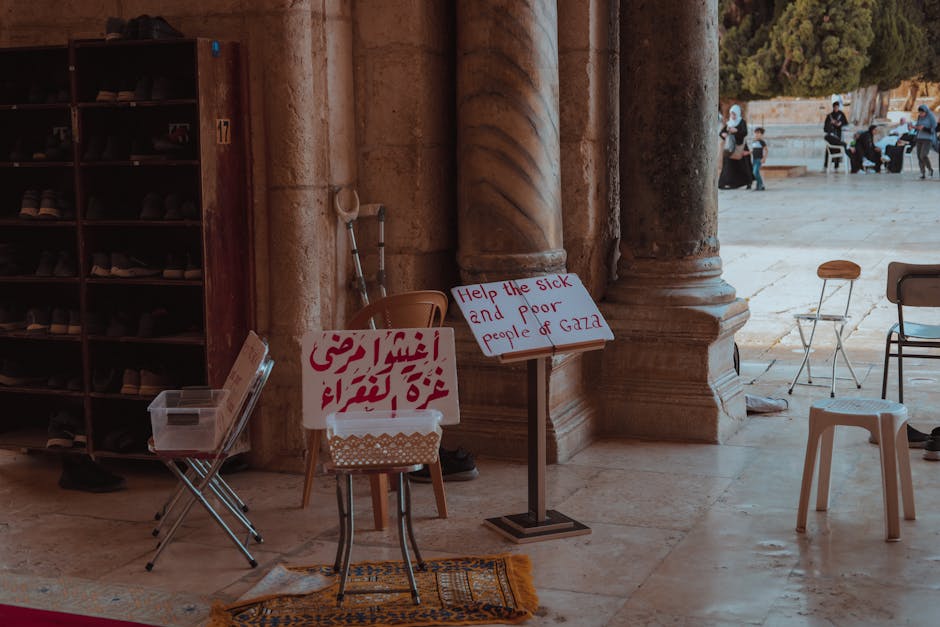The fragile truce in Gaza is teetering on the brink of collapse after Israeli authorities announced an indefinite freeze on all humanitarian aid convoys entering the strip. The move, effective ‘until further notice,’ threatens to unravel the painstakingly negotiated ceasefire and has sent shockwaves through the international community.
Israel Cites ‘Security Irregularities’ for Aid Suspension
The decision was announced by the Coordinator of Government Activities in the Territories (COGAT), the Israeli military body overseeing Palestinian civil affairs. A spokesperson cited “security irregularities” and “breaches of the agreed-upon inspection protocols at the Kerem Shalom crossing” as the primary reasons for the suspension. While official details are limited, unconfirmed reports suggest a dispute over the contents of a specific shipment, which Israel claims violated the terms of the truce agreement.
Humanitarian Crisis Looms as Lifeline is Cut
This development immediately plunges the already dire humanitarian situation in Gaza into an acute crisis. For the over two million residents of the besieged enclave, these aid trucks are a lifeline, delivering essential food, clean water, life-saving medicines, and fuel.
International aid organizations have condemned the halt. A senior UNRWA official in Gaza, speaking anonymously, described the potential impact as “catastrophic.” “Our warehouses are already running low. Hospitals are rationing fuel for generators,” the official warned. “If this freeze lasts more than 48 hours, we will see a complete system collapse. It’s that simple, and it’s that terrifying.”
International Condemnation and Fears of ‘Collective Punishment’
The reaction from Palestinian leadership has been swift and severe. Dr. Mustafa Barghouti, a prominent Palestinian politician, condemned the move as a form of “collective punishment” designed to exert maximum pressure on Gaza‘s populace. “To hold food and medicine hostage is a violation of international law and the very spirit of the ceasefire,” he stated. “This is not a security measure; it is a political weapon.”
Diplomatic channels are reportedly buzzing with activity. Egypt and Qatar, the primary mediators of the ceasefire, are in urgent contact with both Israeli and Palestinian factions to de-escalate the situation. The developments are also being watched closely in New Delhi, which has consistently advocated for a peaceful two-state solution.
Ceasefire on the Brink Amid Diplomatic Scramble
The ceasefire has always been tenuous, relying on a delicate balance of concessions and trust—both now in jeopardy. Hamas, the governing authority in Gaza, has yet to issue a formal response, but sources close to the group warn that a return to hostilities is a “distinct possibility” if the aid blockade is not lifted swiftly.
For now, the loaded trucks sit idle at the border, a stark symbol of a peace process stalled. For the millions trapped in Gaza, the difference between this aid freeze and a renewed conflict is a matter of life and death. The ice upon which this ceasefire was built is cracking, and without immediate diplomatic intervention, it risks shattering completely.




